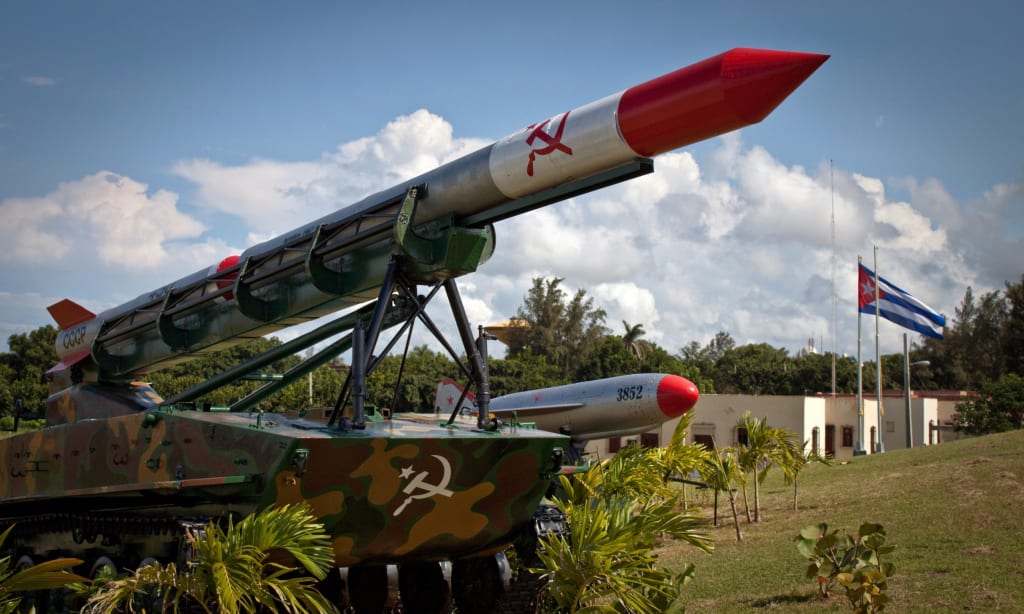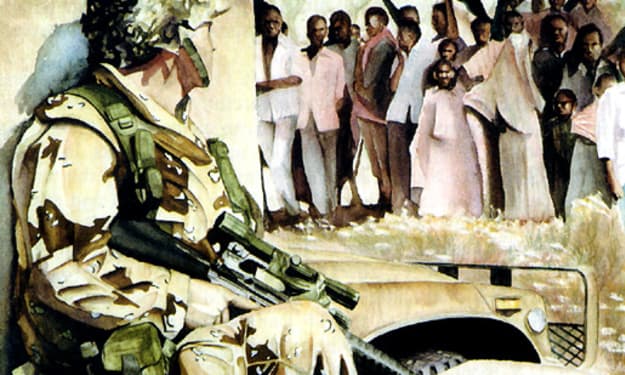
significant showdown that brought the US and the Soviet Union near battle over the presence of Soviet nuclear-armed missiles in Cuba.
In the wake of pursuing a fruitful guerrilla battle against the system of Cuban dictator Fulgencio Batista, Fidel Castro came to turn on January 1, 1959. Castro was not yet a socialist, and US policymakers at first took a careful keep a watch out way to deal with his system. Throughout the span of 1959 and 1960, US-Cuban relations deteriorated because of Castro's anti-US way of talking and radical policies, particularly his refusal to hold races. At the point when obviously Castro expected to seek after a coalition with the Soviet Association, President Dwight Eisenhower slice off conciliatory connections to Cuba and started planning alternate courses of action for ousting Castro and supplanting him with somebody more agreeable to the US.
Perceiving that Castro and his administration were turning out to be progressively unfriendly and transparently went against to the US, Eisenhower guided the CIA to start arrangements of attacking Cuba and defeat the Castro system. On April 17, 1961, a 1,400-man invasion force of hostile to Castro Cuban exiles, Brigade 2506, arrived at the Bay of Pigs beach on the south bank of Cuba. Immediately wrecked by a counterattack of Castro's military, the invasion force was squashed two days after the fact. Bay of Pigs intrusion bombed totally. The beginnings of the Cuban Missile Crisis lie in the bombed Bay of Pigs attack,
As US-Cuban relations crumbled, Castro went to the Soviet Union for help. The Soviets marked numerous exchange and help concurrences with Cuba and furthermore gave political help to the Cuban Revolution in the United Nations and other global associations.
Having guaranteed in May 1960 to shield Cuba with Soviet arms, the Soviet head Nikita Khrushchev accepted that the US would find no ways to forestall the establishment of Soviet medium-and intermediate range range Missile in Cuba. Such rockets could hit a significant part of the eastern US inside a couple of moments whenever sent off from Cuba.
In October 1962, an American U-2 covert spy plane secretly captured nuclear missile destinations being worked by the Soviet Union on the island of Cuba. President Kennedy didn't believe the Soviet Union and Cuba should realize that he had found the rockets. He met covertly with his consultants for a few days to examine the issue.
Kennedy chose to put a maritime barricade around Cuba to keep the Soviets from getting more military supplies. He requested the evacuation of the rockets as of now there and the annihilation of the locales.
Nobody was certain how Soviet President Nikita Khrushchev would answer the maritime barricade and US requests. In any case, the heads of the two superpowers perceived the staggering chance of an atomic conflict and freely consented to an arrangement where the Soviets would destroy the weapon destinations in return for a promise from the US not to attack Cuba. In a different arrangement, which stayed secret for more than a quarter century, the US likewise consented to eliminate its nuclear missiles from Turkey.
Before very long the two superpowers started satisfying their commitments, and the emergency was over by late November. Cuba's socialist chief, Fidel Castro, was angered by the Soviets' retreat but was powerless to act.
In August 1963, the US, the Soviet Union, and United Kingdom marked a settlement restricting climatic and underwater atomic testing. By and by, the test-boycott settlement neglected to stop the weapons contest, as Kennedy all the while approved a huge arms development that immeasurably extended the US atomic munititions stockpile and enhanced US vital prevalence in the Cold War.
The Cuban missile crisis denoted the peak of an intensely opposing period in U.S.- Soviet relations. The emergency likewise denoted the nearest guide that the world had at any point come toward worldwide atomic conflict. It is by and large accepted that the Soviets' embarrassment in Cuba had a significant impact in Khrushchev's tumble from power in October 1964 and in the Soviet Union’s assurance to accomplish, in any event, an atomic equality with the US.





Comments
There are no comments for this story
Be the first to respond and start the conversation.